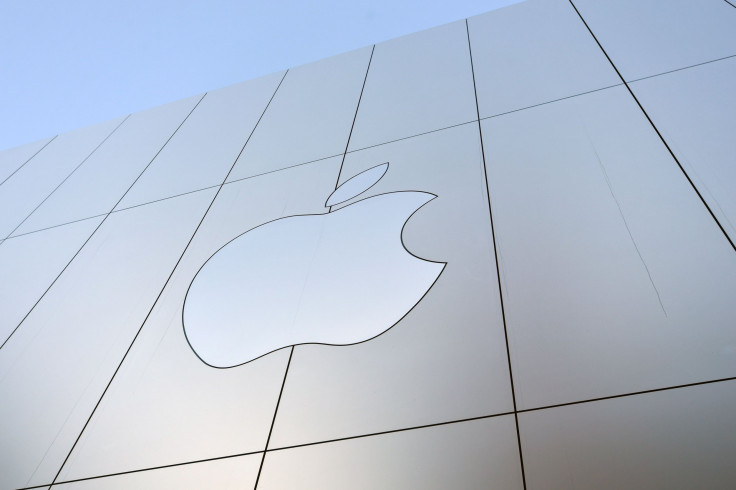Trump's Shot At Samsung Could Hit Apple

This article originally appeared in the Motley Fool.
Behold, the tariff-man cometh. During his presidential campaign, Donald Trump consistently riffed on the idea that the United States was losing, most notably on trade. Post-election Trump has somewhat cooled on the rhetoric and has rebuffed advisors that advocate for radical trade actions. That all changed this month with the administration unveiling the first of its protectionist policies.
While the president has often spoken against trade imbalances with China, it appears another Asian country is disproportionally affected by the administration's actions. Acting on a request from Whirlpool (NYSE:WHR), the Trump administration slapped tariffs on washing machines, targeting South Korean conglomerates Samsung (NASDAQOTH:SSNLF) and LG Electronics. In the end, the world's largest publicly traded company, Apple (NASDAQ:AAPL) could be dragged into the fray.
You Say Tariff, I Say Tax On Consumers
Whirlpool CEO Jeff Fettig profusely credited President Trump, noting "This is a victory for American workers and consumers alike." Unfortunately, he's wrong on both accounts.
Addressing the latter part of Fettig's comment first, tariffs -- aimed at making domestic producers (and the owners of production) more competitive -- end up being government-imposed taxes on consumers. Tariffs are one of the few areas where left-leaning and right-leaning economists tend to agree. A research paper from Jason Furman, who served as President Obama’s chief economist, that was shared by conservative think tank American Enterprise Institute found "tariffs function as a regressive tax that weighs most heavily on women and single parents."
Tariffs Aren't Great For Workers Either
Moving on to the first part of Fettig's assumption, saying that tariffs are good for American workers is a narrow interpretation of the effects of tariffs. While it's true Whirlpool announced 200 new jobs after the tariffs were announced, an increase in the price of durable goods means money won't be spent on other products or services and that could affect other jobs. The second, more pernicious, reason that tariffs are dangerous to U.S. workers is they rarely exist in a vacuum and often invite retaliatory tariffs that hurt other domestic workers.
And that brings us back to Apple. The company may be a major competitor with Samsung in the premium smartphone space, but it's also a customer as well. For years Samsung has provided Apple key parts, most notably the memory used in the iPhone; Counterpoint Technology's research found Samsung makes $110 per every iPhone X sold. In the event South Korea's government feels the country is being treated unfairly, it's likely that the country so intertwined with its biggest company that it's referred to as "Samsung Republic" will retaliate in some form. That could lead to a disruption in the Apple/Samsung customer/supplier relationship.
Apple's Worries Are Deeper Than South Korea
South Korean sourcing issues aside, it's likely Apple's more worried about China at this point. In addition to tariffs on washing machines, the Trump administration slapped tariffs on Asian solar panels upon a request from domestic producers Suniva and SolarWorld, most of which come from China. The country's commerce minister expressed "strong dissatisfaction" with the move. While it's too early to tell if the country will retaliate, Apple has reason to be concerned.

The risk for Apple is two-fold: Like South Korea, China is home to a major Apple supplier, with Foxconn assembling the clear majority of iPhones, Apple's most important product. Perhaps more important than rote assembly, Greater China is responsible for approximately 20% of the company's revenue haul. Compared to big-tech companies like Facebook, Alphabet, and Amazon, which have been outright banned or struggled in the country, Apple's been able to deftly navigate the political waters to its benefit.
At this point, the administration's protectionist actions appear to be limited, but trade disputes often escalate. You can bet executives at Cupertino are watching these events closely.
John Mackey, CEO of Whole Foods Market, an Amazon subsidiary, is a member of The Motley Fool's board of directors. Suzanne Frey, an executive at Alphabet, is a member of The Motley Fool's board of directors. Jamal Carnette, CFA owns shares of Alphabet (C shares), Amazon, and Apple. The Motley Fool owns shares of and recommends Alphabet (A shares), Alphabet (C shares), Amazon, Apple, and Facebook. The Motley Fool has the following options: long January 2020 $150 calls on Apple and short January 2020 $155 calls on Apple. The Motley Fool has a disclosure policy.





















